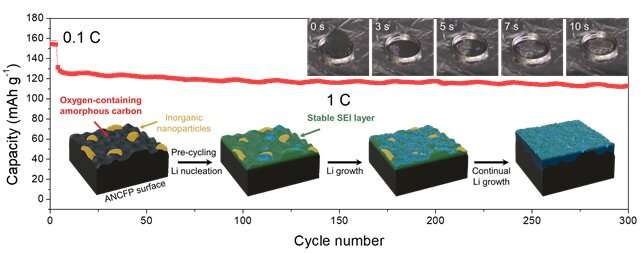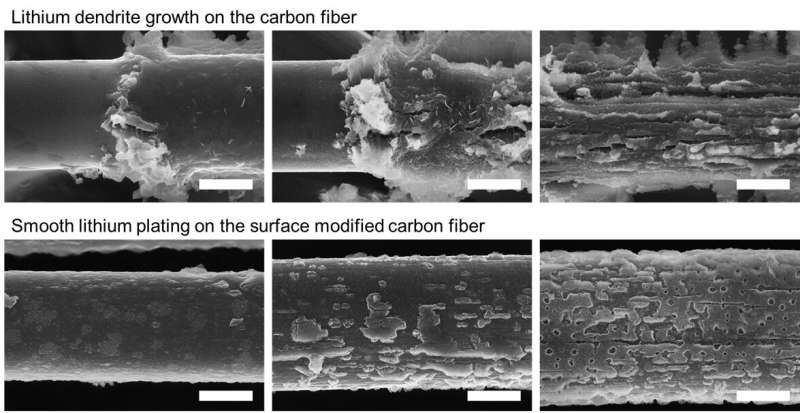
Due to the worldwide growth of electric vehicles, there has been a rise in demand for next-generation secondary batteries with higher capacity and faster charging than the lithium-ion batteries currently in use. Lithium metal batteries have been recognized as promising rechargeable batteries because a lithium metal anode exhibits a theoretical capacity 10 times higher than a commercial graphite anode. During charging-discharging processes, however, lithium dendrites grow on the anode, leading to poor battery performance and short-circuits.
Dr. Sungho Lee, Head of the Carbon Composite Materials Research Center of the KIST Jeonbuk Institute of Advanced Composition Materials and Professor KwangSup Eom, the Gwangju Institute of Science and Technology (GIST), have developed a technology to improve durability using carbon fiber paper as the anode material for lithium metal batteries.
The KIST-GIST joint research team replaced the lithium metal-coated copper thin film with a thin carbon fiber paper containing lithium metal. The developed carbon fiber paper possessed a hierarchical structure on the carbon monofilament composed of amorphous carbon and inorganic nanoparticles, resulting in an enhanced lithium affinity and prevention of the growth of lithium dendrite.
Although copper thin film anode short-circuits after approximately 100 cycles, the developed carbon fiber paper anode exhibits excellent cycling stability for 300 cycles. Furthermore, a lithium metal battery using developed carbon fiber paper shows a high energy density of 428 Wh/kg, which is approximately 1.8 times higher than that using copper thin film (240 Wh/kg). From a process point of view, another advantage is to simplify the electrode manufacturing process because the molten lithium is quickly infused into the carbon fiber paper.

Regarding the significance of this research, Dr. Sung-Ho Lee, Head of the Center at KIST, who led the research, said, "Considering the five times lower density and lower cost of carbon fiber compared to copper, our proposed anode material is an important achievement that can accelerate the commercialization of durable and lightweight lithium metal batteries."